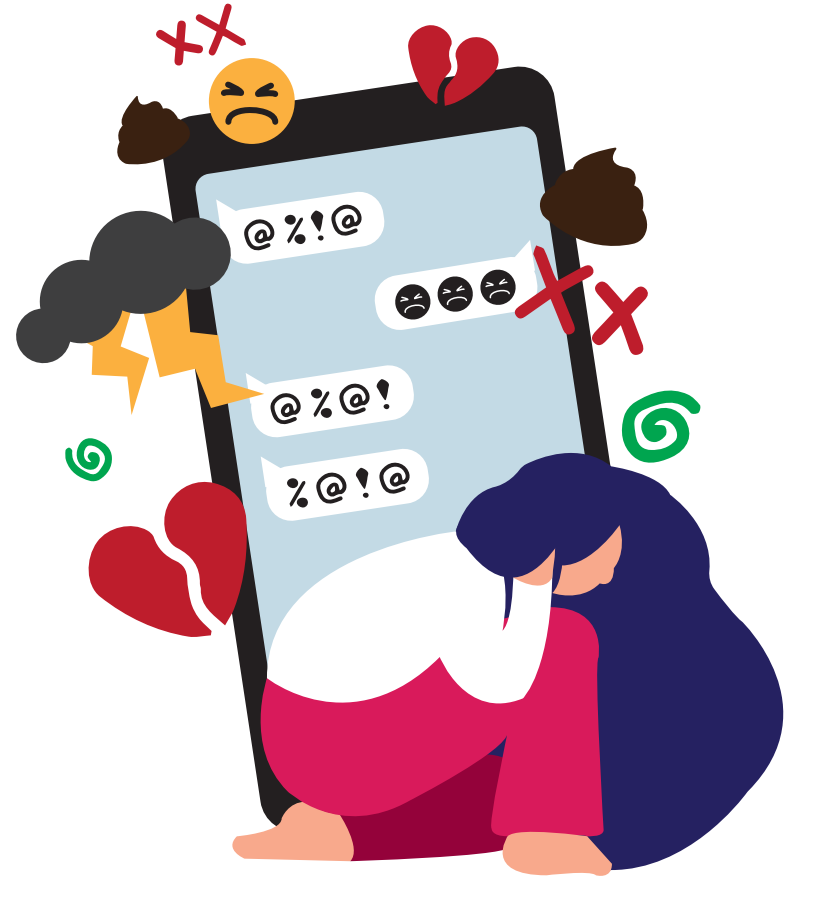
Online learning has its perks and disadvantages, and with more freedom on the internet, it is no wonder cyberbullying has grown among users.
With nothing else better to do, thousands have turned to online platforms to battle the sense of loneliness and isolation. COVID-19 may have pushed people physically farther apart, but our minds can remain connected thanks to modern technology.
The benefits of the internet and social media go beyond just individual connection, extending to learning and education in all age groups. Using sites like Canvas, Blackboard, and Zoom, we as college students continue to pursue our educational goals on digital platforms. In several less conventional classes, social media sites such as Discord are also used for communication and lectures. However, while there are numerous benefits to online platforms and few options given the circumstances, the potential for cyberbullying has become more relevant in this online world.
Have any of you ever been bullied online? Called bad names, ignored by “friends,” held captive by blackmail, or out of context screenshots? Obviously, some of you have. It’s 2020, and as college students, we have all grown up in a digital world. With the COVID-19 pandemic, there is even more opportunity for people to take advantage of the anonymity of the world wide web.
On another note, how many of you have been physically bullied? Hopefully none of you, and if so, school authorities and police have much stricter rules and the ability to bring those bullies to justice. Sadly, the same authority does not extend to online platforms.
Perhaps some may argue that cyberbullying does not cause physical harm in the way stereotypical schoolyard bullying does. This is entirely true, however, words hurt. And even when those words are coming from a stranger, or worse, a “friend” behind a screen, it is hard to forget.
“Toughen up.”
“Grow a thicker skin.”
“Just let it go, you know we didn’t mean it.”
You can only hear those words so many times before it falls on dead ears. Yes, maybe cyberbullying does not harm you physically, but the mental trauma and insecurities can haunt you for years.
Some of the more serious outcomes of cyberbullying include depression, anxiety, panic disorders, eating disorders, body dysmorphic disorder, and in extreme cases, suicide. While cyberbullying often centers around the victims’ appearance, other fears target an individual’s need for acceptance or their personal goals and dreams.
“You’ll never be good enough.”
“We were never really friends, we were just two people who hung out.”
“College is stupid.”
All these words add up, and in my mind, affect the victim the same way if not worse than physical bullying. The mental degradation of cyberbullying is enough to stay with you for months to years. All the quotes are words that have been said to me by friends and acquaintances, some not meaning any harm, but still remain in my mind to this day.
With the COVID-19 pandemic putting all of us behind screens, it is important to think twice about what we say to others. Just because we are muted, cameras off, or hidden behind an internet name, doesn’t mean we all aren’t people. We hurt. And our words have more impact than you’d think. If any of you are experiencing cyberbullying in class, tell your professor. If it’s on social media or another platform, use the resources available to block or report the user. You are not alone, and everyone deserves to be treated with respect.
